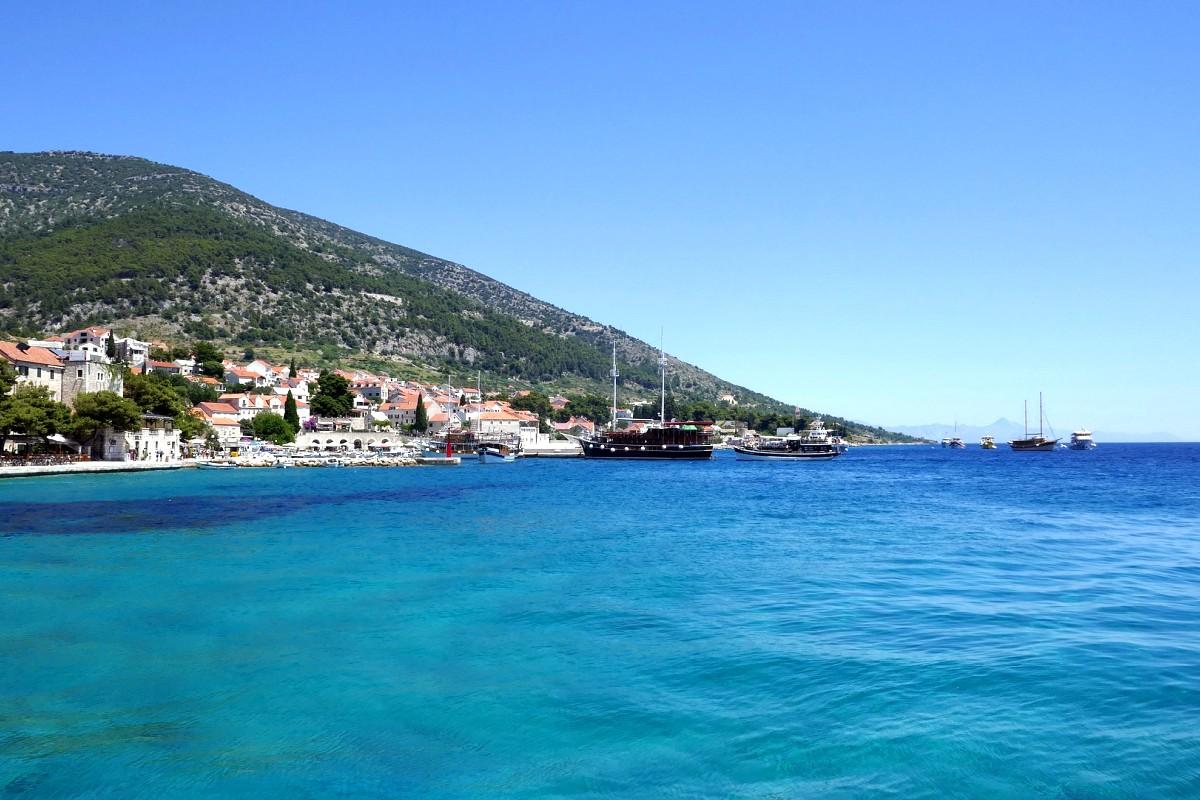Apr 04, 2025
Income Tax in Croatia – Attracting Foreign Capital
Zorana Barada
Client Relations and Promotion Coordinator

Despite its rapidly growing economy, Croatia is still viewed through the lens of a developing country. After nearly half a century under the veil of socialism and a transitional period of adjusting to capitalism, Croatia is gradually but surely catching up with other European countries and becoming an attractive destination for foreign investments.
EU Membership and its Impact on the Economy
In 2013, Croatia became a member of the European Union, marking the culmination of a long process of aligning its legal frameworks with those of the community it was joining. EU membership brought many benefits to the country and symbolically erased the stigma of socialism that Croatia had carried for so long.
Joining the EU resulted in increased foreign investment, particularly along the coastal region. Given that Croatia is blessed with one of the most beautiful coastlines in the world, we can confidently say that it possesses immense potential for further investment.
Overview of the Tax System in Croatia
To attract foreign investors, developing countries need to adapt their tax and legal structures and set strong economic strategic goals. A robust tax policy is not only designed to attract foreign investors and keep pace with more progressive countries, but also to ensure the well-being of the country’s citizens. Croatia’s tax structure is flexible, with the government adjusting it in response to dynamic changes in the economy.
The Croatian tax system can be viewed through three main levies: income tax, capital gains tax, and value-added tax (VAT). This paper will focus on income tax, which relates to earned income.

Comparison of Croatian Income Tax with Other Countries
Most income taxes in Europe are progressive, meaning the tax rate depends on the level of income and is not fixed. Croatia also has a progressive income tax, which applies to the tax base when determining the annual tax obligation.
In Croatia, the progressive tax rates range from 15% to 35%. The rate also depends on the place of residence, as it is influenced by local government units. The highest statutory income tax rate applies to income falling within the highest income bracket, meaning it primarily affects the wealthiest individuals.
The highest tax rate varies significantly from country to country, reflecting different approaches to financing public services and social welfare.
Research conducted by the European Commission and PricewaterhouseCoopers (PwC) in 2024 among European OECD member countries and accession countries shows that Croatia is positioned almost in the middle in terms of income tax rates among the countries covered in the study.

The highest income tax rate in Croatia is 35.4%. Considering that the average income tax rate in European OECD countries is 42.8%, Croatia’s position among the surveyed countries is quite clear. For comparison, the income tax rate in the United States (taking into account all states) is 42.32%, which does not deviate significantly from the European rate.
Developed countries tend to have higher tax rates, with Austria at 55% and France at 55.4%. Among the countries surveyed, Denmark leads with the highest income tax rate of 55.9%.
Developing countries, including those in Europe with experience under socialist regimes, apply lower and fixed income tax rates. The goal of such tax policies is to ease the tax burden for citizens and businesses, attract foreign investors, and ultimately foster economic growth and development. For example, Bulgaria and Romania apply a flat income tax rate of 10%.

Top real estate offer in Croatia
Browse the best offer of Croatian real estate and find your dream home.
Among countries with lower income tax rates, Hungary stands out with a rate of 15%. On the other hand, among post-socialist countries with higher income tax rates, Slovenia leads with a rate of 50% and a progressive tax structure.
For those considering investing in Croatian real estate, particularly houses or apartments, this tax structure offers a competitive edge over other European nations.
Competitiveness of the Croatian Tax Framework and Investment Potential
Croatia boasts competitive tax frameworks, which are a key factor in its economic success and investment potential. Foreign investors direct their investments based on tax benefits and the stability of the political structure, and Croatia offers both, making it a safe investment destination. Since its independence and particularly since joining the EU, Croatia has aligned its tax system with European standards and implemented demanding structural reforms.
This is evidenced by the fact that foreign companies have been present in Croatia for years. Foreign investments bring capital that the state strategically directs, leading to the training of new labor forces, further attraction of foreign capital, and overall economic development through job creation and increased living standards.
There is always room for improvement, such as enhancing the tax legal system, increasing transparency, better control of corruption, digitalization, and modernizing administration.

Conclusion
Despite its experience with socialism and the post-socialist transition period, Croatia has made significant progress in economic development, and its tax system plays a crucial role in attracting foreign investments.
EU membership has allowed Croatia to align with European standards, and its competitive tax framework and political stability make it an attractive destination for investors. Croatia’s income tax rate sets it apart from other European countries on a similar developmental path, positioning it as a secure haven for future investments, thanks to a stable tax framework that competes with more advanced European countries.
Found this useful? Share with

Client Relations and Promotion Coordinator
Dedicated and hardworking individual known for her strong sense of responsibility and punctuality. A true workaholic, she consistently strives for excellence while maintaining a warm, empathetic, and approachable demeanor. Always eager to help and support her colleagues, she is highly valued for her kindness and collaboration. Outside of work, she has a deep passion for literature and enjoys long walks, which help her stay grounded and inspired.
Dedicated and hardworking individual known for her strong sense of responsibility and punctuality. A true workaholic, she consistently strives for excellence while maintaining a warm, empathetic, and approachable demeanor. Always eager to help and support her colleagues, she is highly valued for her kindness and collaboration. Outside of work, she has a deep passion for literature and enjoys long walks, which help her stay grounded and inspired.
Want to connect with us? We'd love to hear from you! Send us a message, and we'll get back to you shortly.



